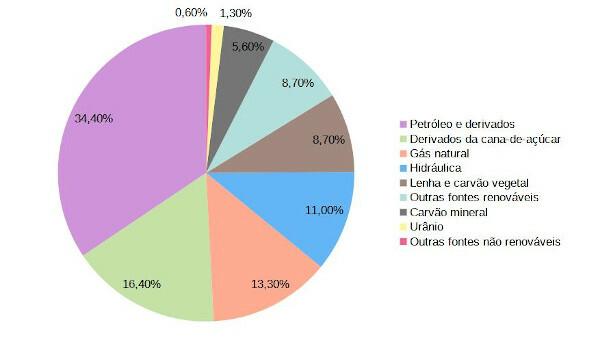THE personal report it is a text in which someone tells a fact or an experience to another person. It is predominantly narrative and, therefore, presents character, setting, time and narrator. Because it is a personal event, it is marked by strong subjective elements, that is, individual elements of the person who reports it.
Know more: Emotive or expressive function — discursive intentionality relates to the speaker
Summary about personal report
The personal account is a predominantly narrative text in which the experiences and experiences are related to another person.
He presents, while narrativeThe, characters, setting, time and narrator. In addition, it is structurally organized into: title, introduction, development and outcome/conclusion.
To do so, it is important to have a well-defined theme, knowledge of the narrative aspects of the text and its structure. It is written in first person and uses formal language in most cases.
The main difference between a personal account and a diary is that the former is addressed to someone, and the latter is confidential.
It can be either oral or written.
Do not stop now... There's more after the ad ;)
What are the characteristics of the personal report?
for being anarrative from personal experiences — feelings, thoughts and experiences —, the personal report presents Actual characters, setting, time and narrator, because it is a text dedicated to narrating facts and events. In other words, the narrator is the one who participates and reports the events (so he is in the first person); the characters are the people involved in your story; time and setting comprise the place and time when such events took place.
What is the structure of the personal report?
During writing, the narrator must be attentive to answer the following question: How did you live that experience? Thus, the following structural aspects of the text are important:
Title: although it is not mandatory, it is interesting to use it to draw your reader's attention to the topic addressed.
Introduction: is the presentation of your personal report. Thus, it is important that you contextualize your reader about the lived experience.
Story development: It is important to present, in a chronological way, the succession of events in your account. The linearity of the narrative helps the reader to better understand the text.
Outcome/Conclusion: It's the end of your story. In it, it is important for you to reflect on your experience, that is, to identify the positive and negative points (if any) and comment on them.
Read too: Personal letter — a textual genre used to build dialogue between intimates
How is a personal report made?
To make a personal report, it is important have defined the topic to be addressed. Unlike other personal genres, the report follows a slightly more formal structure precisely because it is directed to another person and does not maintain confidentiality. It can be requested, for example, in school activities by teachers. In this case, it is essential that the student has the necessary information that the teacher can request to be in the report.
With the theme defined, it is important to choose a attractive title for your reader. Also, remember to use the standard language norm and, in the opening paragraphs, make the contextualization to the reader, introducing you to the topic and your experiences. Remember to explain, if necessary, the details to understand the events as well as list them in a linear way.
At end, The outcome must reflect a reflection that has the highlights that you consider important about your personal experience lived and reported. Here you can present elements that you considered positive or not, if they exist.
Example of personal story
|
my first days of class I started classes at a new school and decided to share my experience in my early days. Until then, I had never changed schools. I have always studied in the same educational institution, since when I started my education. In the first few classes, I felt quite out of place. I didn't know the teachers, and even though the class was large, approximately 50 students, I didn't know any of my classmates. I tried to approach them, but many already had their groups, and I understand them, after all, when I studied at my school, I also had my class. I believe it was in the second week that I started to find myself, or rather, to find my “tribe”. I discovered that some colleagues loved Star Wars, and this was the starting point for us to start long debates, some still in the classroom, others outside it, in the intervals. With the friendships forwarded, I needed to understand a little more the dynamics with the teachers. The room, as I said, was very crowded, and the teacher, unfortunately, could not pay attention to all the students. There was a lot of group activity, with dynamics in which we produced texts, experiments and other materials. However, the teachers could not answer or even memorize the names of the students. In this respect, the excessive amount was a big problem. Even so, I noticed a huge effort in them to offer the best class possible. Eventually, I began to admire the attitude and commitment of the teachers, and I sympathized with some of my fellow Star Wars fans. The experience at a new school was very cool. I believe that a change of scenery is always a challenge, no matter what it is. It can be a simple change of school, job, city and even country. Any change makes us afraid and apprehensive because we don't know exactly what will happen from there. However, with time, we get used to it, the fear goes away and life goes on. |
The example is a personal account of a student's early days at a new school. In the first paragraphs, he introduces your reader to the topic, explaining about the change and indicating some challenges. Next, we have a narrative highlighting the events of the early days and the relationship with some fundamental characters in the story: the classmates and the teachers. In the final part, he makes a reflection on what you experienced, the fear of change, inherent to human beings, to talk about their experience in the new institution.
What is the difference between a personal account and a diary?
The personal account and the diary present structural and conceptual similarities. Both are predominantly narrative texts, written in 1st person and dealing with the personal (subjective) experiences of the writer. However, the personal account is a text dedicated to someone else, while the diary is confidential.
Furthermore, the diary can bring multiple experiences. The personal account, on the other hand, is dedicated to a single experience, which can be a trip, a read news, a visit to a place, etc. The language of the report is formal precisely because it is requested in school and academic institutions, among others. In its turn, The diary is written informally and according to what its author defines, as he will be its main reader.
Oral report and written report
The activity of reporting some experience is one of the oldest of humanity, existing even before writing. Therefore, the report can be both oral and written. The written report is marked by formality, given the greater capacity for recording.
However, in the time in which we live and with the technological resources available, it is common to see reports, on YouTube channels and other social networks, of the most diverse events. Despite this, the oral report follows the basic characteristics of the written report, that is, it presents a character, scenario, time and narrator. By using orality, depending on the situation, the oral report allows a slightly more informal language.
By Rafael Camargo de Oliveira
Writing teacher



